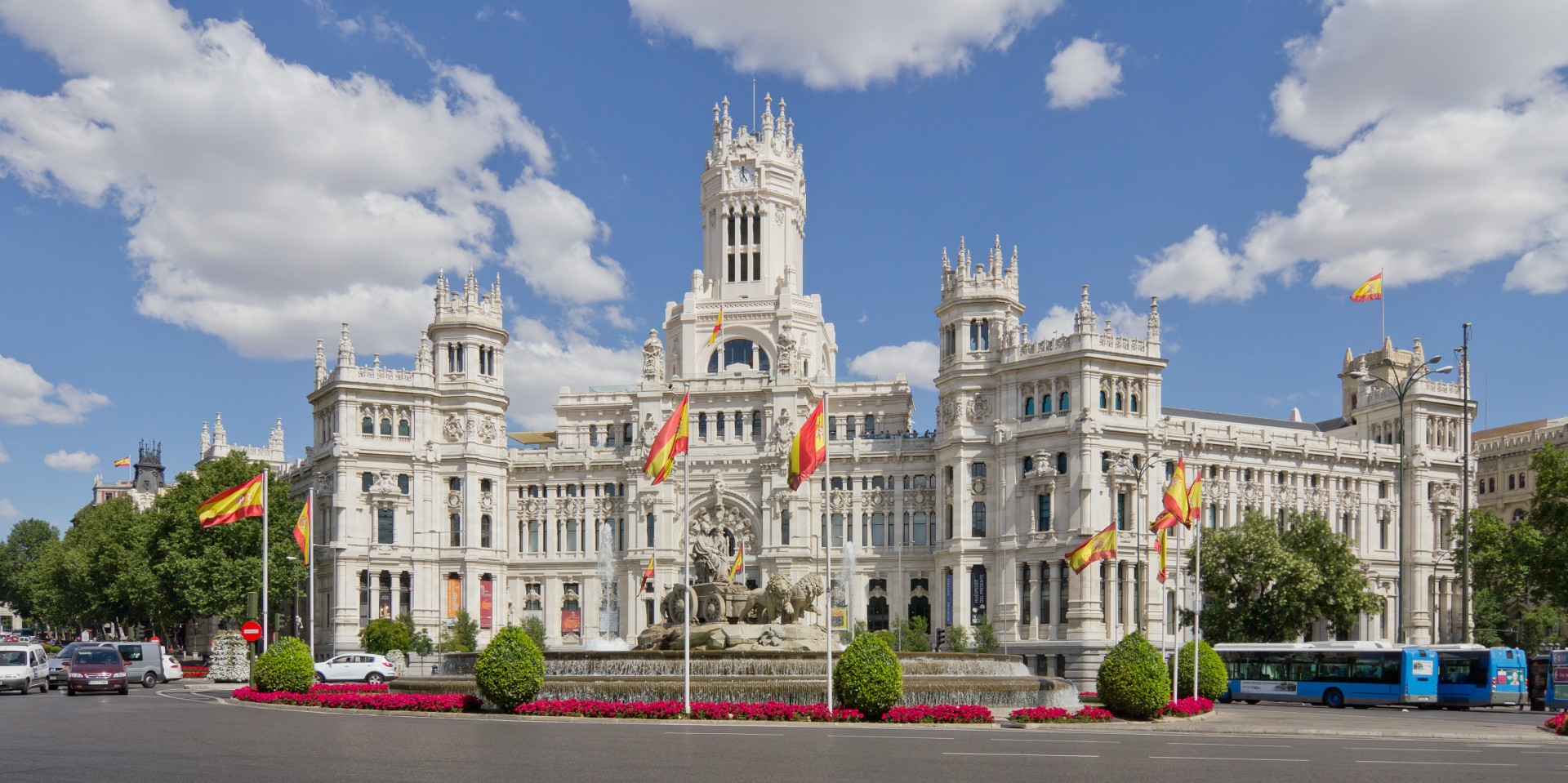
Carlos Delgado, Palacio de Comunicaciones - 47, CC BY-SA 3.0
Decide Madrid (DM) is the first e-participation platform that allows citizens, associations, NGOs and companies to be involved in the policy cycle in Madrid municipality. DM was launched in 2015 and allows citizens to make proposals, vote in citizen consultations, propose participatory budget projects, decide on municipal regulations and open debates to exchange opinions with others. DM received the 2018 United Nations Public Service Award in the Category “Making institutions inclusive and ensuring participation in decision-making”. The formal proprietor of the platform and the software used (“Consul”, open source software) is the City Council of Madrid. The General Directorate of Citizen Participation of the City Council is in charge of the day-to-day management.
Aims and scope
DM is the e-participation platform of the city council which aims at encouraging the participation of citizens in the management of the city, involving them in the generation of innovative and viable ideas and proposals in order to improve their quality of life. The participation of citizens in Madrid is regulated by the Organic Regulation of Citizen Participation of the City Council of Madrid approved on May 31, 2004. The guidelines and procedures that support the working of this platform have been approved by different agreements of the city council since October 2015. DM allows citizens to participate in different stages of the policy cycle: agenda setting, policy analysis and preparation, policy formulation and, in some cases, policy monitoring. Participation can be carried out through five sections (debates, proposals, polls, processes and participatory budgeting). The initiative is confined to Madrid municipality, but the software developed, “Consul”, has been implemented or is in the process of being implemented in around 100 institutions from 33 countries.
Implications and (un)intended effects
1. Legitimacy
The high level of internet use in Madrid and the possibility of offline participation in the most significant activities carried out through the platform reduce the possible negative impacts of some factors that could discourage participants (e.g., the digital divide or the lack of trust in the security of online systems). Demographic data about the participants in polls and participatory budgets is publicly available and does not show democratic legitimacy troubles on the input side. A positive unexpected consequence of the platform that favoured the legitimation of the results was the high level of participation at the beginning of the initiative.
In most cases, users decide what is discussed on the platform, with the exception of public consultations and processes. Moreover, there is only a slight moderation before the comments are published to ensure there are no illegal comments (e.g., incitement to violence). DM activities are backed by regulations and agreements of the city council, but the final implementation depends on the feasibility of the input received and the will of the city council.
Concerning transparency, citizens are provided with information to facilitate their participation (e.g., technical reports, proposals for public consultation and related information), citizen input is publicly available and statistics about the profile of participants is also disclosed for participatory budgets and some polls. However, citizens can only follow up their contributions in participatory budgets. The citizens interviewed complain that they lacked information about the outcome of their contributions.
2. Efficiency and Effectiveness
The creation, implementation and the operational costs associated with DM are funded by the city council’s budget. The use of DM is free for citizens. The funding has been sufficient in all the phases of development of DM and the financial sustainability is guaranteed.
The effects on efficiency and effectiveness are significant in terms of internal and external collaboration. DM has facilitated changes in the organizational culture of the city council and concerning the traditional ways of citizen participation. DM has also reduced the cost of participation for citizens (24/7 access from home or on the move).
Until 2018, more than 1,000 actions have been decided by citizens, the level of participation has reached more than 200,000 citizens in some activities and citizens decide around 2% of the municipal budget. However, the effectiveness of some sections is questioned and the citizens interviewed note that they do not have enough information about the effect of their contributions and the progress of the projects already approved.
3. Politics-Administration Dichotomy
DM is an example of the importance of government and public servants’ commitment to, and their knowledge about, citizen participation in order to ensure the success of e-participation initiatives. Moreover, this initiative lead to changes in the organizational culture of the city council and in the traditional ways of citizen participation. All government areas and administrative units of the city council contribute to DM by proposing topics and evaluating the proposals. Sometimes, citizen’s proposals change the planning, priorities and ways of working. This caused some resistance and complaints at the beginning, because the different units had extra work with the same resources. Now the staff is adapted to the new organizational culture. However, the commitment to e-participation of future governments of the city council will determine the persistence of these changes.
To read more about the case study, see D5.1 – Comparative case studies on e-participation report.
Further materials
- Website of Decide Madrid: Available here.
About the Authors
Vincente Pina, University of Zaragoza
E-Mail | Homepage
Lourdes Torres, University of Zaragoza
Sonia Royo, University of Zaragoza
Jaime García-Rayado, University of Zaragoza
